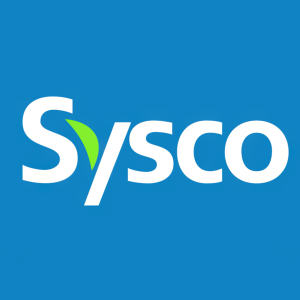United States
Securities and Exchange Commission
Washington, DC 20549
Notice
of Exempt Solicitation
SYSCO
| 2. | Name of persons relying on exemption: |
THE ACCOUNTABILITY
BOARD, INC.
| 3. | Addresses of persons relying on exemption: |
401 Edgewater Pl #600, Wakefield, MA 01880
The attached written materials are submitted pursuant to
a voluntary application of Rule 14a-6(g)(1) promulgated under the Securities Exchange Act of 1934. Submission is not required of this
filer under the terms of the Rule but is made in the interest of public disclosure and consideration of these important issues.

October 3, 2025
Dear fellow shareholders,
Item 4 on Sysco’s proxy statement requests a policy to separate
the Board Chair and CEO roles.
Sysco’s opposition statement says stockholders
“rejected a proposal requiring an independent Chair in 2019.” Just to be clear, whereas that proposal would’ve required
an independent Chair, ours only asks that the Board be Chaired by someone who’s not also the company’s CEO.
Further, the opposition statement says the 2019 proposal
was rejected “by an overwhelming majority.” But it’s important to note that Sysco had experienced strong five-year returns
going into the 2019 annual meeting. Today, that isn’t the case. Our proposal includes the five-year performance chart from Sysco’s
10-K filed in 2024, showing significant underperformance relative to the S&P 500 and S&P 500 Food/Staple Retail Index.
Clearly, the company’s current leadership
structure has not been sufficient to protect shareholder value. Looking ahead, we think shareholders would be better served by a different
approach.
To help further explain the benefits of Chair/CEO separation
(beyond what’s in our proposal), let’s examine the observations of other companies where Sysco directors were serving.
For instance, with Sysco’s own
governance committee Chair, John Hinshaw, on its governance committee, DocuSign said that
“separation of the positions of Board Chair and Chief Executive Officer reinforces the independence of the Board in its oversight
of the business and affairs of the Company.”
DocuSign also recognized benefits from having an independent
chair—benefits we believe arise from separation alone. For example, that it “creates an environment that is more conducive
to objective evaluation and oversight of management’s performance, increasing management accountability and improving the ability
of the Board to monitor whether management’s actions are in the best interests of the Company and its stockholders” and “enhances
the effectiveness of the Board as a whole.”
With Sysco governance committee member
Sheila Talton on its Board, Wintrust Financial said “strong corporate governance
is a critical component of our success” and listed having an independent Chair as an example of its governance “best practices.”
It further explained: “The Board has a non-executive Chairman. This position is independent from management. The Chairman leads
the Board meetings as well as meetings of the independent Directors. The CEO is a member of the Board and participates in its meetings.
The Board believes that this leadership structure is appropriate for the Company at this time because it allows for independent oversight
of management, increases management accountability and encourages an objective evaluation of management’s performance relative to
compensation. In addition, the Board recognizes that acting as Chairman of the Board is a particularly time-intensive responsibility.
Separating these roles allows the CEO to focus solely on his duties, which the Board believes better serves the Company. Separation of
the roles of Chairman and CEO also promotes risk management, enhances the independence of the Board from management, and mitigates potential
conflicts of interest between the Board and management.”
With Ali Dibadj on its Board, Janus
Henderson touts having an independent Chair—which necessarily means the role has been separated
from management—as one of its governance “highlights.” It says this structure “facilitates effective, independent
Board oversight of management and the Company’s strategic direction” and that at this time, its current leadership structure
“in which the roles of Chair and CEO are separated, effectively enables the Board to carry out its duties.”
Will Jill Golder on its Board and governance committee, ABM
Industries in 2025 stated of its separation the roles of Chair and CEO that the structure “best serves the Board’s ability
to carry out its roles and responsibilities on behalf of ABM’s stockholders, including the Board’s oversight of ABM’s
management and ABM’s overall corporate governance.” It further said, “The Board also believes that the current structure
allows our Chief Executive Officer to focus on most effectively managing ABM.”
With Bradley Halverson on its Board, Lear Corporation emphasizes
under its “corporate governance highlights” that it “maintain[s] separate Chairperson of
the Board and CEO roles.” As it further explains, “Our Board has decided to maintain
separate Chairperson and CEO roles to allow our CEO to focus on the execution of our business strategy, growth and development, while
allowing the Chairperson to lead the Board in its fundamental role of providing advice to, and independent oversight of, management, as
well as oversight of Board meetings. The Board recognizes the time, effort and energy that the CEO is required to devote to his position
in the current business environment, as well as the commitment required to serve as our Chairperson.”
And with Mr. Halverson on its Board and governance committee,
Constellation Energy explained that “Currently, the roles of the Chief Executive Officer and Board Chair are separated. The Board
believes that this leadership structure ensures independent oversight and promotes the Board’s ability to effectively represent
the best interests of all shareholders.”
To be clear, we’re not suggesting these companies
have policies requiring Chair and CEO separation; but importantly, they all made the decision to separate the roles anyway. We share their
statements here because they are examples of Boards with Sysco’s own directors on them clearly espousing the benefits of having
two different people serve as Chair and CEO. Especially considering Sysco’s substantial financial underperformance (as charted in
the proposal), we think these are benefits our shareholders should also be able to enjoy. Thank you for your consideration.
We’re not asking for and can’t accept your proxy.
Please vote “FOR” Item 4.







